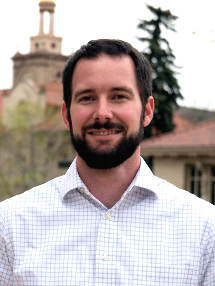Mike Wagner
University of Wisconsin-Madison
Seminar Information

The rapid decrease in renewable electricity technology costs has fundamentally shifted the way grids operate and plan for new capacity. Increasing penetration of inexpensive solar photovoltaics and wind reduces the overall retail cost of electricity but intensifies daily variability in net demand. Dispatchable conventional technologies such as natural gas combined cycles, coal, or nuclear utilize firm fuel sources. However, they have not traditionally been designed to follow frequent and substantial variations in demand without incurring fatigue damage and increasing long-term operations and maintenance costs. The net result of these factors is often a market that pays a premium for morning and evening generation while offering little or no revenue during daytime hours when renewables are most productive. Energy storage and dispatch is therefore prerequisite to enabling high levels of renewable deployment.
This talk surveys recent research into dispatchable renewable technology design and operations at UW-Madison’s Energy Systems Optimization Lab. Concentrating solar power technology with thermal storage is given special consideration, and an approach for scheduling optimal dispatch against variability in market price is presented. Because CSP is a complex and tightly coupled system and difficult to optimize directly, the approach combines a simplified mixed- integer-linear optimization model for decision making with a detailed engineering thermal simulation tool. The model balances response to price features, forecasted solar resource, and the impact of load following on long-term maintenance costs. Related applications, including hybrid energy systems with thermochemical battery storage, are also discussed.
Dr. Mike Wagner is an Assistant Professor of Mechanical Engineering at the University of Wisconsin-Madison, where he conducts research on optimal design and operations of renewable energy and energy storage technologies. He is principal investigator of the Energy Systems Operations Lab research group, a faculty member of the Solar Energy Lab, and a faculty affiliate of the Wisconsin Electric Machines and Power Electronics Consortium. His research includes thermal systems modeling, system design and operations optimization, and predictive performance analysis of energy generation and storage technologies.
Prior to joining UW-Madison, he was a senior researcher and principal investigator for over 11 years in the Thermal Systems group at the National Renewable Energy
Lab in Golden, Colorado. At NREL, he developed several performance models for NREL's widely used System Advisor Model software, and he also developed a concentrating solar field layout and optimization tool called SolarPILOT™ that combines analytical and stochastic methods to optically characterize power tower
solar fields. Dr. Wagner has served as principal investigator on a number of Department-of-Energy-funded projects including development of tools for algorithmic optimization of solar plant design, operations, and maintenance policies, design and characterization of a high-temperature solar receiver for supercritical carbon dioxide applications, and others. Dr. Wagner is a graduate of the University of Wisconsin-Madison (B.S., M.S.) and Colorado School of Mines (Ph.D.). His work has been recognized with the Presidential Early Career Award for Scientists and Engineers (PECASE), the Colorado School of Mines Rath Award for best thesis with greatest potential for societal impact, and several NREL achievement awards.
